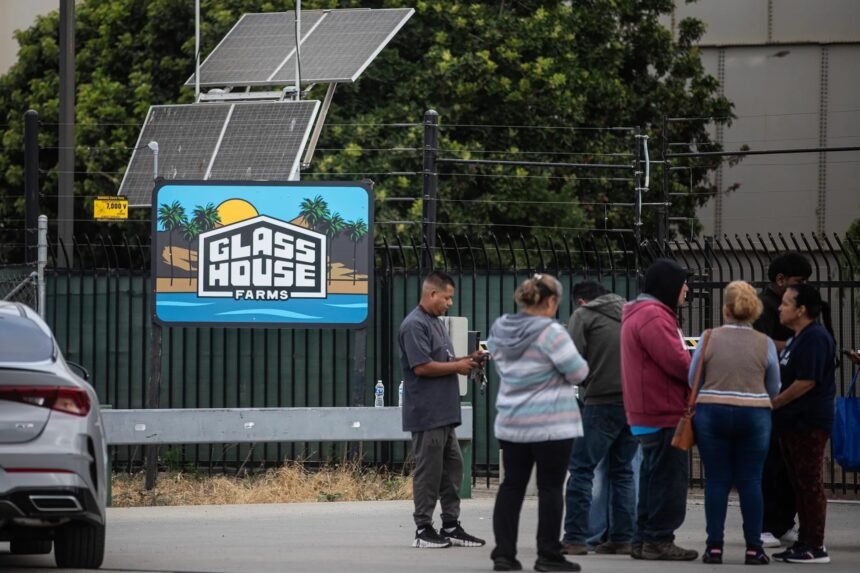But any sense of ease was snapped by the immigration raids last week, which were tied to alleged labor violations by Glass House Farms. Federal authorities ultimately reported more than 360 arrests of people they suspected of being in the country illegally and the recovery of 14 immigrant minors. Glass House Farms did not respond to emailed questions.
“There is absolutely heightened risk working for a cannabis facility. It shouldn’t be that way,” Woodson said. “Folks should be aware of that risk and we should be prepared as an industry to manage that risk.”
The Trump administration has not given an indication whether those operations were an isolated incident or a reflection of shifting enforcement priorities on cannabis. The U.S. Drug Enforcement Administration did not respond to emailed questions.
Advocates had hoped that Trump might finally lead the way on loosening federal restrictions on cannabis. Yet since suggesting during his campaign last fall that he would downgrade the classification of weed so that its medical uses can be more easily studied, Trump has made no moves toward rescheduling.
Other developments signal that momentum may be moving in the opposite direction. During his confirmation hearing, Trump’s nominee to lead the DEA would not commit to removing cannabis from the list of serious narcotics, and there is an ongoing effort in Congress to block its reclassification.

“We can’t take anything for granted,” Steph Sherer, executive director of the advocacy group Americans For Safe Access, warned industry members on a video call last week following the raids. “We’ve gotten dependent on this broader layer of support for medical cannabis that’s being tested right now.”
She suggested that growers learn how to read a search warrant, have a criminal lawyer on retainer and plan how they would pay for bail.
Not everyone believes it’s time to panic just yet. Some local members of the cannabis industry have noted that Glass House’s facilities are surrounded by other weed farms that were not raided by federal authorities, which could mean the operation was entirely unrelated to drugs.
The California Department of Cannabis Control subsequently confirmed that it was actively investigating a child labor complaint against the company.
“The employment of individuals under the age of 21 in the cannabis industry is strictly illegal, a serious matter, and is not tolerated,” spokesperson David Hafner said in a statement.
This article was originally published on CalMatters and was republished under the Creative Commons Attribution-NonCommercial-NoDerivatives license.







